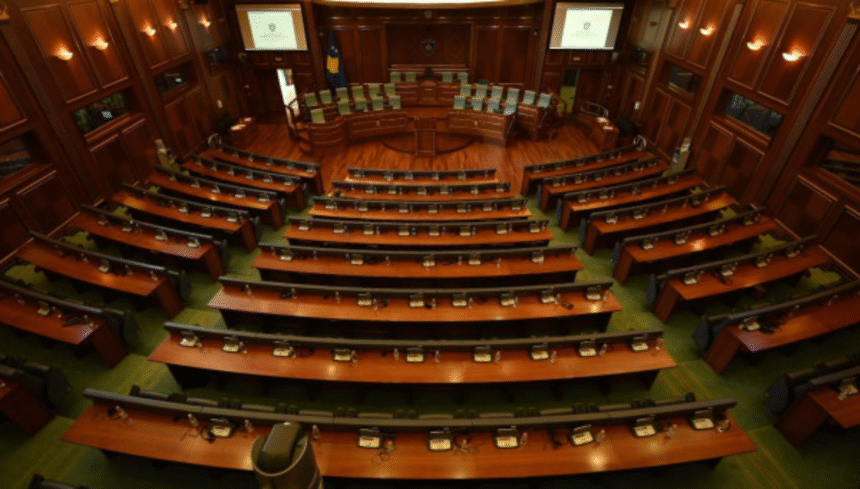Amid escalating political tensions and repeated failures to constitute Kosovo’s Parliament, attention is turning toward the Constitutional Court as a potential solution to the ongoing institutional deadlock.
Following the 11th failed attempt to elect the Speaker of Parliament, Prime Minister in acting capacity and VV leader Albin Kurti extended a public invitation on May 5 for a coalition with the Democratic League of Kosovo (LDK). However, LDK leader Lumir Abdixhiku firmly rejected the proposal on Tuesday, reiterating his party’s demand for a transitional government until the next presidential elections in 2026.
As Parliament prepares for yet another session on Wednesday, experts anticipate another failure to elect the speaker, primarily due to the lack of a 61-vote majority.
Expert Opinion: Constitutional Interpretation Could Break the Stalemate
According to Vullnet Bugaqku from the Kosovo Democratic Institute (KDI), the persistent impasse may require a constitutional interpretation.
“If this type of political gridlock continues, I see no other way than to refer the matter to the Constitutional Court,” Bugaqku stated. He noted that at least 10 MPs can initiate this process.
The central issue, he explains, lies in whether the repeated proposal of the same candidate for Speaker, despite multiple failures to secure the necessary votes, is constitutionally acceptable or whether it violates the procedural framework.
Bugaqku highlights that ambiguities in the Constitution and parliamentary rules call for an authoritative interpretation. This could determine whether a candidate who has failed three or more times can lawfully be re-nominated.
Presidency’s Role: Political Consultations, Not Interference
President Vjosa Osmani has also been encouraged to convene all political parties for broad consultations.
While the President cannot interfere in the institutional formation process, she can legally and constitutionally initiate dialogue among party leaders to seek a consensual solution to the deadlock.
“The President can’t assign institutional formation rights, but she may call for unified talks without breaching constitutional limits,” Bugaqku added.
If such consultations also fail, President Osmani could submit a request to the Constitutional Court for legal interpretation of the situation and current legislative limitations.
Ongoing Boycotts and Abstentions Deepen the Crisis
The Vetëvendosje Movement’s nominee, Albulena Haxhiu, has failed repeatedly due to opposition from PDK, LDK, and AAK, as well as abstentions from the Social Democratic Initiative (NISMA).
Furthermore, deputies from the Serb List and Bosniak MP Duda Balje have abstained from all votes, worsening the parliamentary vacuum.







